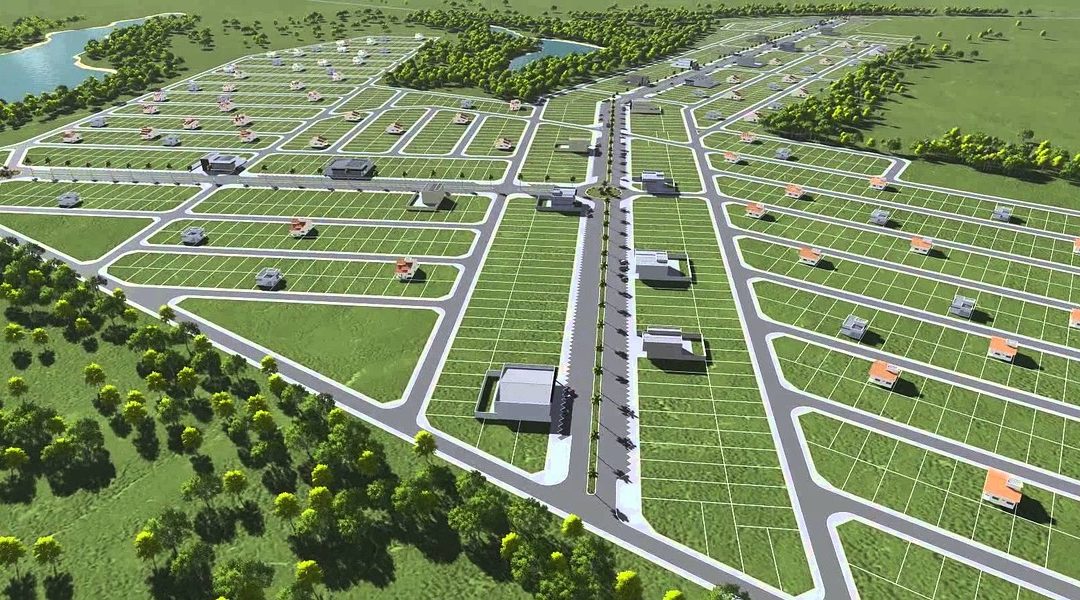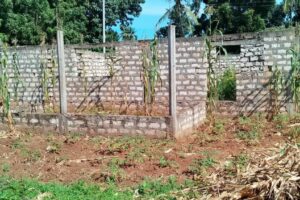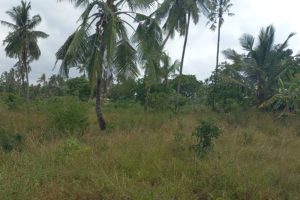
by Georole Ltd | Feb 25, 2023 | land survey
Land registration is any of various systems by which matters concerning ownership, possession, or other rights in land are formally recorded (usually with a government agency or department) to provide evidence of title, facilitate transactions, and prevent unlawful disposal.
Picture this: you’re browsing your favourite social network, and you spot an advertisement for a piece of ‘prime property’, ‘good for development’, with a ‘ready title deed’, and what’s more, the price is just within the limits of your pocket! You laugh and think to yourself, ‘Kwani someone is spying on me? Wasn’t I just telling someone the other day how I need to buy a piece of land?’ (Let’s also assume that they’re genuine as well). You call the number provided, set up an appointment and in a few days you’re seated in a plush office within the city, ready to begin the process. They issue you with a document known as a Letter of Offer, or Heads of Terms, which contains all these legalese terms and also requires your signature, and the attestation of an Advocate, before they can proceed. What next?
land registratin process
First off, we advise you to retain the services of an Advocate to act on your behalf as the buyer. You can do this through referrals or through searching for the one closest to you on the LSK Search Engine here or here. In some instances, it is possible to have one Advocate act for both buyer and seller, provided there will be no conflict of interest. The purpose of retaining an Advocate is to have them break down the legalese into simple terms as well as secure your best interests in the transaction. Once you’ve retained an Advocate, their actions include:
- obtain an official postal search of the property, to ascertain, among other things, the legal ownership of the property, that the title is clean, that there are no impediments to transactions on the property (these are called encumbrances), and that the seller has the right to sell the property.
- attest the Offer Letter/Heads of Terms document you received, signifying your acceptance of their offer to buy the property from the seller and your willingness to proceed with the transaction. It is important to note that this document is not a binding contract, but denotes the intention of the undersigned parties to enter into a binding contract. To this end, at the top of the document, there should be the words ‘Subject to Contract’ written clearly (and in uppercase, if possible).
Note: The required documents to obtain an Official Search are a copy of the Title, which the buyer’s Advocate (your Advocate) gets from the seller or his Advocate, and a copy of the National Identity Card of the person applying for the search. This could be the Advocate themselves or one of their employees. The search is done at the applicable Land Registry Office. Let’s assume our piece of land is situated in Nairobi and its environs. The search would then be conducted at the Central Registry, which is situated at Ardhi House. Once they present themselves at the Registry, they will fill the required Land Search Application Form, and pay the search fee, which is K.Shs 500. They will then present the Form, Copy of Title and ID, and the receipt issued at the Registry Counter for the search to be conducted on the property. This process takes roughly two to three days, after which you can obtain the Official Search.
- The seller’s Advocate will then draft an Agreement of Sale and forward it to your Advocate for correction (where necessary) and execution (signature) within 14 days. Within these 14 days, the buyer’s Advocate (your Advocate) will draft a Transfer Instrument and forward the same to the seller’s Advocate for correction and execution, while also requesting them to provide them with Transfer Documents (also known as Completion Documents) for verification. The basic Transfer Documents are:
- The original Certificate of Title (or Lease, if applicable) for the property;
- Consent to Transfer from the National Land Commission (this takes roughly nine to twelve days to process, at a fee);
- Land Rent Clearance Certificate for the property, together with the Land Rent Payment Receipts;
- Land Rates Clearance Certificate from the relevant County Authority, together with the Payment Receipts;
- The Transfer Instrument, duly executed by the seller;
- The duly executed Sale Agreement, outlining the parties to the sale, the full description of the property, Advocates’ details, the selling price, how and when it is to be paid (including date of receipt of each instalment, where necessary), deposit amount and how it is to be held, date of completion and mode of termination of agreement, and what may lead to the said termination;
- Certified copies of the Seller’s I.D. and PIN Certificates;
- An affidavit of Spousal Consent to Sell by the seller’s spouse, or an Affidavit by the Seller stating that no spousal consent is necessary for the transaction.
Payment of Stamp Duty
Stamp Duty is a key requirement during land registration. It is tax payable, according to the Stamp Duty Act, on all land transactions involving change of ownership either through consideration (payment), gift, or partition of land, except where otherwise stipulated by the law. There are two stages of payment of Stamp Duty, the assessment and valuation stage, and the actual payment of Stamp Duty. The assessment and valuation stage of this process is usually handled by the Buyer’s (your) Advocate. The documents required and prepared by the Advocate are:
- The requisite application for valuation form in quadruplicate;
- A copy of the Official Land Search;
- The executed Transfer document;
- A certified copy of the Deed plan/route sketch/site map (as the situation requires);
- The buyer and seller’s passport pictures.
These documents are to be presented at the rightful counter at the Lands Office for assessment, with one copy of the application form retained by the applicant for follow up purposes. The assessment of the presented documents take about a maximum of two weeks.
Site visit of the property. The physical presence of the Government Valuer and the Registered Owner at this visit is mandatory. The purpose of this visit is to ascertain the actual value of the property vis a vis the declared value or the selling price. This is where assessment and valuation of the property takes place.
A brief valuation report is entered into the application form (above), and together with the valued Transfer document, is returned to the Lands Office for collection by the applicant. The Assessed Value and Duty Payable is indicated on the first page of the Transfer document.
Once valuation and assessment are complete, we move to the actual payment of Stamp Duty. It is usually charged at 4% of the value for leasehold properties situated within cities, towns or urban areas, and 2% of the value for freehold properties situated outside of cities, towns or urban areas. Stamp Duty must be paid within 30 days of assessment of value. Note: In Kenya, Stamp Duty is paid on the KRA’s iTax platform.
The Seller, individually or through their Advocates, using the Seller’s iTax profile, generates a Payment Registration or PRN form, for the payment of Capital Gains Tax, which is the tax on whatever profit made on the transaction – the difference between the selling price and the assessed value (known as the Capital Gain). This form has an acknowledgement number indicated on it. The form is then presented to a bank of choice by the Seller’s Advocate or agent for the payment of the amount indicated as CGT. Upon payment of CGT, the Buyer’s Advocate obtains the PRN form from the Seller’s Advocate, and using the acknowledgement number therein, generates a separate PRN form using the Buyer’s iTax profile for the payment of Stamp Duty. This PRN form is also presented to a bank of choice by the Buyer’s Advocate for the payment of the indicated amount.
Once Stamp Duty is paid, the assessed documents are presented at the relevant Registry Office by the Buyer’s Advocate or their agent for franking. Franking refers to the placement of an official mark by the relevant authority (in this case, the Collector of Stamp Duty) to indicate that the required tax has been paid or does not need to be paid (i.e., the instrument is exempt). The required documents for franking are the Transfer Instrument and its two Counterparts (Original copies), and the Stamp Duty Payment Receipt (both the form from iTax and the bank receipt). The franking process takes two to four days.
Once all these processes are complete, we can now proceed to registration. This is done by the Seller’s Advocate. An Application for Registration form (also known as a Booking Form) is filled, in triplicate while enclosing:
- The Transfer Document in triplicate;
- The Official Search Certificate;
- Consent to Transfer from the relevant authority;
- The Land Rent Clearance Certificate;
- The Land Rates Clearance Certificate;
- Certified copies of the I.D.s and PIN Certificates, together with passport pictures, of both the buyer and the seller.
Upon presentation at the Registry Counter, an application fee of K.Shs. 500 is charged and collected. The officer at the counter then verifies that the documents enclosed are those declared on the form, stamps all copies of the Booking form and returns one copy of the form to the applicant, with a Daybook Number clearly indicated on it. (The Daybook Number is the entry of that particular transaction, in this case, booking for registration, recorded in the events of that particular counter on that day, as they occur. The time is also recorded).
The Registration process should take 7 – 21 days, and the Advocate or their agent ought to keep following up at the counter using the Daybook Number provided.
Finally, once the documents are ready, the Advocate or their agent presents their copy of the Booking Form at the counter and receives the Transfer Document, in triplicate, registered in favour of the Buyer, together with a Certificate of Title, in the Buyer’s name. These documents are later given to the Buyer for their records and safekeeping.
Conclusion and Recommendation
The process outlined above details the most basic procedure followed while purchasing and registration of land, and we can also replace the term ‘land’ with ‘apartment’, although there would be an additional process included should one be using financing from a lender. Remember, always seek legal advice from a qualified Advocate or Land experts before getting into any contract or agreement so as to properly secure your rights and to better understand all the issues involved in the transaction.
Now, go forth and buy that property and check off ‘buy land/property‘ from your bucket list!
“If you found this article helpful, consider supporting our work to keep creating valuable content.”

by Georole Ltd | Nov 18, 2022 | environnment management
What is EIA? Read this article to know the answer.
The Process for obtaining EIA approval
- preparation of a project report by a registered environmental impact assessment expert. This report will state: The nature of the project; The location of the project including the physical area that may be affected by the project’s activities; The type of activities to be carried out during the project construction, operation and decommissioning phases; The project design; The materials to be used, products and by-products, including waste to be generated by the project and the respective disposal methods; The project’s potential environmental impacts and the mitigation measures to be taken during and after project implementation; An action plan for the prevention and management of possible accidents during the project cycle; A plan to ensure the health and safety of the workers and neighboring communities; The economic and socio-cultural impacts to the local community and the nation in general; The project budget; Any other information the authorities may require.
- Submit the report to NEMA with the payment of 0.1% of the total project cost.
- NEMA receives EIA project report and dispatches to Lead Agencies for review.
- NEMA issues a license if the project is considered to have no significant environmental impacts or that the project report discloses sufficient mitigation measures. On the other hand, when the project will have a significant environmental impact and the project report discloses no sufficient mitigation measures, the authorities will request the that an environmental impact assessment study (Full Study) be done.
Note: During the process of conducting an environmental assessment study, the proponent and the expert will, in consultation with the authorities, seek the views of persons who may be affected by the project.
Requirements
The investor submits a detailed Environment Impact Assessment Project report for the entire project cycle prepared by an EIA expert registered by NEMA. The report is in 10 hard copies and 1 soft copy with the following details:
- Name of the project proponent, PIN, address and contact person
- A plan to ensure the health and safety of the workers and neighboring community
- An action plan for the prevention and management of foreseeable accidents and ways of mitigating the same during the project cycle.
- The entire design of the project.
- The economic and social benefits to the local community and also at the national level
- Physical location of the proposed project
- Waste disposal methodologies
- Mitigation measures to be taken during and after the implementation of the project
- Objectives and scope of the project
- Potential environmental impact
- Project budget
- Views from the public indicating representativeness of the affected people
Conclusion
The findings of EIA provide information on the nature and extent of environmental impacts likely to arise from the Project. The EIA , where appropriate, identify mitigation measures to ensure compliance with environmental legislation and standards. It predicts whether the Project will comply with all environmental standards and legislation after the proposed construction and operational stage mitigation measures are implemented. The report also demonstrate the acceptability of the residual impacts from the Project and the protection of the identified environmentally sensitive resources. Environmental monitoring and audit mechanisms should be recommended before and during construction, where necessary, to verify the accuracy of the EIA predictions and the effectiveness of recommended mitigation measures.
We hope that this article have sufficiently covered the procedure for obtaining EIA approval (license) in kenya. Should you however need further clarifications, we remain available for further consultation and to assist you professionally and efficiently to secure an EIA license for your project. Reach our team of experts here. We are farther recommending these other important articles about EIA EMCA 1999, EIA Regulations, What you need to know about EIA and Environmental Impact Assessment (EIA).
“If you found this article helpful, consider supporting our work to keep creating valuable content.”
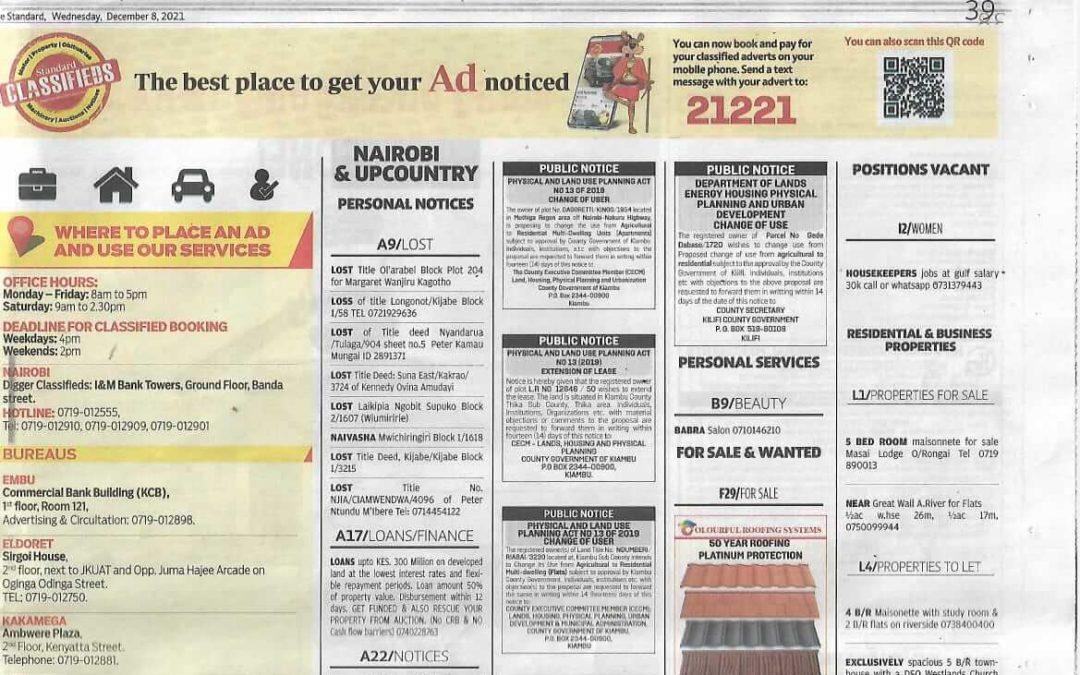
by Georole Ltd | Nov 11, 2022 | physical and land use planning
According to Kenyan laws and regulations, the proponent shall apply for and secure a permit of change of use before starting a development on his land or property for a purpose other than the permitted development as per the approved Zoning Regulations Plan or the existing physical development plan. Due to powers vested on County Governments to control land use and development, application is made to seek permit of change of use from the respective County Governments’ Department in charge of Physical Planning and urban development for consideration through a registered physical planner.
Procedure for securing permit of change of use
step 1
- Place an advertisement and get recommendations from members of the public and line ministries, which are obtained by the County Government.
- Obtain PLUPA 1 form and make application for the change of use by filling in the form and duly signed by a registered physical planner.
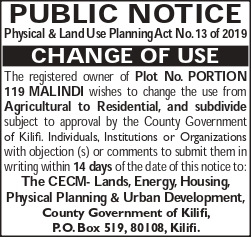 Publish public notices regarding the proposed change of use in two daily circulating newspapers, inviting objections from the public within a period of not less than fourteen days. A site notice will also be placed on the site indicating intention to change its use within the same duration.
Publish public notices regarding the proposed change of use in two daily circulating newspapers, inviting objections from the public within a period of not less than fourteen days. A site notice will also be placed on the site indicating intention to change its use within the same duration.- Through a physical planner prepare a Planning brief whose objectives include; to examine the compatibility of the proposed development with the development trend in the area, to provide background information regarding the site area in reference to the physical setting, location and level of infrastructure and services, to evaluate the impact of the proposed development on the socio-economic and physical environments in the area and to make appropriate recommendations in reference to the policies governing development and the level of compatibility of the development with the socio- economic environment and other land uses for consideration by the approving authorities.
- Pay the requisite fee to the respective County Government and annex the receipt to the planning brief.
- Submit the planning brief attached with the required documents to the County Government’s Department of Physical Planning for approval.
- The County Government will receives submissions from the general public on any oppositions to the change of use.
- The County Government will then review the change of use proposal/brief with the public objections received if any and will pass a resolution, recording reasons, regarding its consideration or non-consideration for the change.
- The authority shall, if it finds that the changes sought are relevant to planning principles and are in public interest and are not in contravention to any other statute, give permission for the same by issuing a PLUPA 2 form.
step 2
- An application is further made to the Commissioner of Lands for change of use;
- The Commissioner of Lands issues an approval/consent to effect change of use, subject to Banker’s Cheque payments towards Surrender (Conveyancing and registration) and Grant of New Title (Conveyancing, registration an stamp duty);
- The Consent from Commissioner of Lands is then forwarded together with all documents to Survey of Kenya to obtain deed plan;
- Surrender the title.
Requirements for application to secure permit of change of use
- Two Dully filled P.P.A 1 forms in triplicate submitted and signed by a Registered physical Planner
- Planning Brief prepared by a Registered Physical Planner (signed accordingly)
- Planning scheme
- Ownership documents: can either be a title deed, certificate of title or certificate of lease.
- Survey plan
- Comprehensive Location Plan
- Advertisement of proposal on two local dailies
- Application fee receipt
- Latest Rates payment receipts*
Professional & Statutory Costs involved in securing permit of change of use
1. The change of use application has no standard fee since it varies in counties depending on the sought of change
2. PLUPA 1 form fee is usually Kshs.1000
3. Newspaper Advertisements (Two daily newspapers)
4. Professional Fee depending on the project size and its locality.
Conclusion
Georole Ltd hopes that this article have sufficiently covered the procedure for securing a permit of change of use in Kenya. Should you however need further clarifications, we remain available for further consultation and to assist you professionally and efficiently to secure a permit of change of use. Reach our team of physical planners through here.
“If you found this article helpful, consider supporting our work to keep creating valuable content.”

by Georole Ltd | Oct 25, 2022 | land survey
It is very important for someone to ensure that he/she go for the best deal at all times when buying a land. If some important factors are ignored, to find an ideal land becomes a big challenge and the buyer may end up regretting. By reading this article you will learn about the important things you should consider before buying a land.
The important factors to consider when buying a land
- Zoning Regulation: before setting out to buy a piece of land, ensure to find out the zoning regulations for the surrounding area, and the property itself. The relevant authorities i.e., county governments have rules which states what a piece of land can be used for, whether it be agricultural, commercial, industrial, or residential. If your neighboring land can’t turn into a factory in 5 years, it might not be a great idea to build your secluded getaway there. This is important since it helps you to determine whether your intended development is compatible with the registered use of the land you are about to buy thus avoiding extra costs of processing change of use as well as mitigating the risk of restrictions from developing.
- Utilities accessibility: determine whether basic utilities such as water, electricity, gas and any other utility you may require are readily available or can be easily accessible. find out what companies can provide you with the utilities. The rates that you get will depend on the location of the land, so make sure that the information is accurate, and that you can access it all times. I recommend that reach out to the service providers via phone and ask for quotes as well as consider seeking help from locals in the area about their satisfaction with the local utilities.
- Market value of the land: this will help in understanding the economic situation of the area of investment. As an investor, it is important to understand how the growth pattern, the appreciation rates, and the use of the land for a period of time. Land is the most valuable form of asset investment in the real estate market. In most cases urban land has a much higher price in both the short and the long run. The market value of land is the main pillar which profit in real estate investing depends on. Also, by determining the land value (involve land valuer) you are able avoid over charging when purchasing a land. Read more about valuation
- Security: Take your time to find out whether there is adequate security i.e. police station or posts within the neighborhood. Do not buy land if the locality experiences criminal and social injustice activities such like robbery, theft and or kidnapping.
- Security of tenure: Make application for a postal land search at the land registry office of the locality. This is important to identify the registered owner of the land; Whether there are any incumbrances against the land e.g. caveats or cautions put on the title deeds due to disputes on the land or pending court cases regarding the land; Whether there is a charge on the land, in cases where the title deed has been used as collateral for securing a credit facility/ loan with a financial institution like a bank, etc. The search will also indicate the size of the land.
- Climate: the temperature highs and lows, rainfall amount and intensity, and seasonal changes are important factors one has to give priority when determining what land to buy. Climate can affect various aspects of life, such like; health conditions like asthma that are affected by temperature, energy usage, right type of kit home for your block of land, Potential for extreme weather conditions e.g., frost and drought, growth of vegetables and plants as well as type of crops one can grow and finally, home insulation. read more about climate.
- Social & Physical Infrastructure: Depending on your intention of use, infrastructure plays a key role in day to day activities of a developer. e.g. schools, hospitals, markets, dispensary, religious centers.
- Land characteristics: This entails soil type, topography,
- Type of intended development
In case you find the article useful and would like to support me, you can buy me a coffee ☕

earth road – not convenient during raid season.

Tarmac road – very convenient and recommended.






 Publish public notices regarding the proposed change of use in two daily circulating newspapers, inviting objections from the public within a period of not less than fourteen days. A site notice will also be placed on the site indicating intention to change its use within the same duration.
Publish public notices regarding the proposed change of use in two daily circulating newspapers, inviting objections from the public within a period of not less than fourteen days. A site notice will also be placed on the site indicating intention to change its use within the same duration.